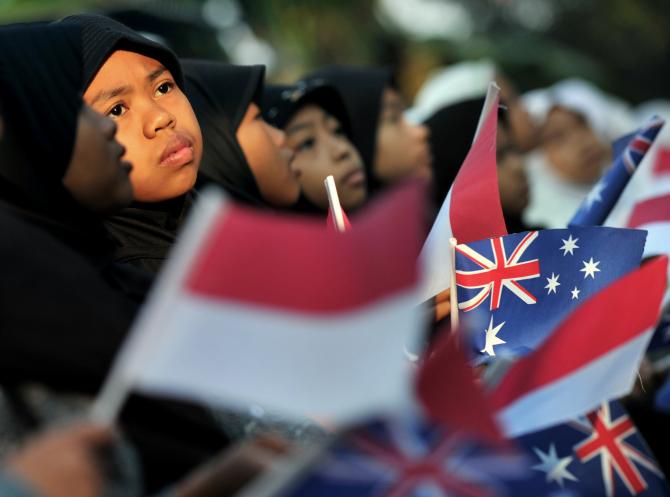
Elizabeth Pisani, the American-born and British-educated epidemiologist, journalist and author, discloses the real thinking that is driving decision-making about Indonesia. Pisani is one of the most lucid and informed writers on Indonesia. Her acclaimed book “Indonesia Etc.: Exploring the Improbable Nation” was published by Granta Books in Britain. However, it had been originally offered to the Australian branch Macmillan Publishers.
In a clumsily worded and logically inconsistent rejection letter, the company’s editor said: “Despite our proximity to Indonesia, or perhaps because of it, there’s not a great deal of curiosity among Australians about it … it tends to fall under the zone of familiar rather than exotic.”
It seems self-evident that Australians should be Asia literate. When old mates live far away in Europe and North America but the people next door outnumber you 11 to one, it’s wise to wave, have a chat, share a joke and help keep the street clean. Simple gestures lubricate harmony – and can lead to trade.
Politicians say they deplore the decline but do little to stop it. Colin Barnett is the premier of Western Australia, a major supplier of wheat and meat to Indonesia. Visiting Jakarta earlier this year to talk trade, Barnett said the Indonesian language was not so important because most meetings were held in English. Academics and diplomats groaned in despair.
On the other side of the political spectrum, Chris Bowen, the Labor Party federal shadow spokesman on economics, startled journalists this year by announcing that he’s learning Indonesian, as though this was like nude tightrope walking – weirdly newsworthy. It is. Only three out of 226 Australian federal politicians are known to be fluent in the Indonesian language.







 resized.png)
